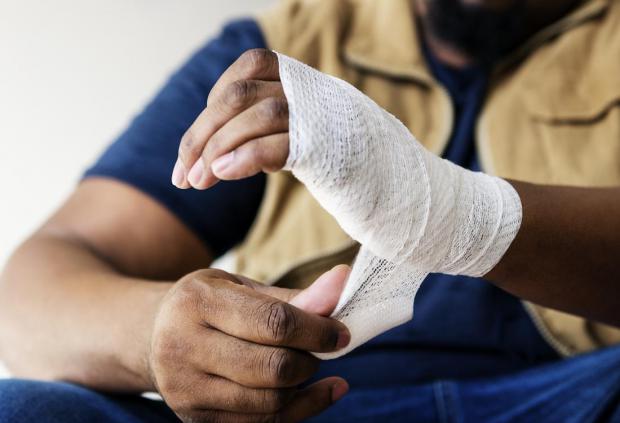
Breaking News
 IT'S OVER - I Have Proof: Fed Opened $24B Credit Line to 3 Banks (Jan 2nd Emergency Emails Leak
IT'S OVER - I Have Proof: Fed Opened $24B Credit Line to 3 Banks (Jan 2nd Emergency Emails Leak
 The Poo Doctor: This Gut Mistake Leads To Cancer. The Cheap Spice That Helps Repair...
The Poo Doctor: This Gut Mistake Leads To Cancer. The Cheap Spice That Helps Repair...
 Vaccine ingredients Exposed - Children's Health Defence "CHD"
Vaccine ingredients Exposed - Children's Health Defence "CHD"
Top Tech News
 Laser weapons go mobile on US Army small vehicles
Laser weapons go mobile on US Army small vehicles
 EngineAI T800: Born to Disrupt! #EngineAI #robotics #newtechnology #newproduct
EngineAI T800: Born to Disrupt! #EngineAI #robotics #newtechnology #newproduct
 This Silicon Anode Breakthrough Could Mark A Turning Point For EV Batteries [Update]
This Silicon Anode Breakthrough Could Mark A Turning Point For EV Batteries [Update]
 Travel gadget promises to dry and iron your clothes – totally hands-free
Travel gadget promises to dry and iron your clothes – totally hands-free
 Perfect Aircrete, Kitchen Ingredients.
Perfect Aircrete, Kitchen Ingredients.
 Futuristic pixel-raising display lets you feel what's onscreen
Futuristic pixel-raising display lets you feel what's onscreen
 Cutting-Edge Facility Generates Pure Water and Hydrogen Fuel from Seawater for Mere Pennies
Cutting-Edge Facility Generates Pure Water and Hydrogen Fuel from Seawater for Mere Pennies
 This tiny dev board is packed with features for ambitious makers
This tiny dev board is packed with features for ambitious makers
 Scientists Discover Gel to Regrow Tooth Enamel
Scientists Discover Gel to Regrow Tooth Enamel
 Vitamin C and Dandelion Root Killing Cancer Cells -- as Former CDC Director Calls for COVID-19...
Vitamin C and Dandelion Root Killing Cancer Cells -- as Former CDC Director Calls for COVID-19...
Learn the basics of wound management for survival situations

But what happens when you get wounded in a survival situation and heading to the ER is simply not an option?
Survivopedia recently outlined the best ways to manage wounds when medical support is not available. Here's a look at how to handle some of the most common types of wounds.
Abrasions
Abrasions are one of the most common types of wounds because they can happen so easily – as any child who has ever skinned their knee or elbow can attest. Any time you rub your skin against a rough surface at speed, like that sidewalk when you fall off your bike or the carpet when you trip over a cord – you might get an abrasion that bleeds. While these wounds don't normally pose as many dangers as other types, it is essential to remove any gravel, dirt or other detritus that could make its way inside the wound right away.
These injuries can usually be dealt with using an antibacterial ointment once any debris has been removed. Then, keep it covered until it has healed, keeping an eye on the site for signs of infection such as swelling, increasing pain, pus, swollen glands, or a fever.
Punctures
As unpleasant as it may be to think about, sometimes a sharp object can penetrate deep into your skin and the tissue underneath it. Although these wounds might not cause a lot of bleeding on the surface, they can lead to internal damage.
These can be very challenging to clean, and it's important to keep in mind the possibility of tetanus if the puncture was caused by rusty metal and rabies if the puncture is from an animal bite.

 "Boots on the Ground"
"Boots on the Ground"


